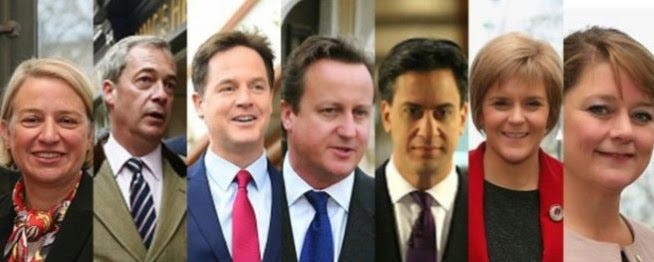Values - Parish Newsletter for May 2015

Just about every headline in the papers and on TV and radio news programmes is about the election. There are masses of pledges, claims and counterclaims by all the parties as they compete for news time and for votes.
It was 5 years ago as we approached the last general election that I wrote my first article for this parish newsletter. At that time our eldest was 15 years old, but this time two of our children will be voting in their first general election. One of them has been asking me to help her grasp the differences between the parties. She really wants to understand and is taking her vote very seriously. She was angry when a celebrity was wheeled out to endorse a party. “It’s too important a decision to be swayed by the voting decisions of celebrities”, she said, “How do they know what’s best for the country?” She was frustrated when talking with one of her friends who has decided what to vote based on a single sound bite from one political party. “It’s much more complex than that!” she exclaimed. She has also been shocked by the “playground nature” of the personal attacks against the party leaders that are broadcast in the media.
For someone looking to engage in politics for the first time, the noise around a general election can be particularly confusing and making informed comparisons between the parties based on policies is hard work. I’ve read through the manifesto pledges of six of the parties and it took a high level of concentration to understand and digest what they were pledging and where they differed from each other. Some policies are obviously in alignment with what I would believe to be the core ideology of a party, but others seem to be tacked on to attract votes in some marginal seats (which is not really surprising).
I want my daughter to make up her own mind, so to get past the complex maze of policies I’ve been trying to help by pointing her to various internet resources and explaining the main ideologies/values of the parties. I am no political expert, but in many ways I think ideologies/values are more important than party policies; we are likely to have a coalition government again, so whoever is elected will have to negotiate what policies they will enact over the life of the next parliament. In that situation the ideology/values of a party are likely to have a significant bearing on the agenda of the next government.

Our values influence our attitudes and behaviours and they are shaped as we journey through life by what we read, hear, watch and by the people we associate with. Types of values include ethical/moral values, ideological values (religious and political), social values and aesthetic values. Our values are so much part of us that we are often not aware of them and we rarely examine them, or question whether they are ’right’. We like authors and speakers that tend to reinforce our values and beliefs and tend to avoid, ignore or rubbish those that don’t. For example people with right wing values will tend to read the Times, Telegraph or Mail and those with a more left wing leaning will tend to read the Guardian, Observer or Mirror.
As the election approaches there is an increasing tendency amongst the parties to demonise people with different values to their own. The candidates and activists I’ve met from a range of political parties are all working hard for votes because they genuinely believe that their party holds the key for a better future for our nation. I may not agree with some of the values or policies of their party, but I don’t doubt their authenticity.
Whatever our ideologies/values, I think it is important that we are open to hearing ideas that are different to our own and trying to understand them. That counts whether they are political, social, religious, or anything else. We often learn a lot about our own values and biases when we genuinely try to understand how and why another person, or organisation thinks differently or has different values to ourselves. This broadens our perspective and helps us in making more informed decisions.
My hope is that our young people and us older folk can be encouraged to think carefully about our values and the decisions we make. Not just be persuaded to vote in a certain way, or follow a certain belief system because our parents or friends vote/hold that belief.
Whatever our political, social or religious ‘leaning’ I hope that we explore, investigate, think and reflect on ours and others ideologies and values. Then whatever conclusion we come to… vote.
Rev Barry Jackson



